Re: Psycho-spiritual Integration, Positive Psychology
Fr: Excerpts of Wendy Schuman’s interview with Dr. Martin Seligman (underscore mine)
The Psychology of Real Happiness
Psychologist Martin Seligman helped change his profession's focus from what's wrong with people to what's right with them.
Dr. Martin Seligman is a pioneer in the areas of positive psychology, learned helplessness, depression, and optimism and pessimism. Currently Fox Leadership Professor of Psychology at the University of Pennsylvania, he is the author of 20 books, including "Learned Optimism" and "The Optimistic Child." His latest book is "Authentic Happiness." He spoke with Wendy Schuman about how his work has influenced his views on happiness and spirituality.
Q: You're called the father of positive psychology. When you were president of the American Psychological Association, you brought a revolutionary change to the focus of what psychologists were doing. Could you talk about how that happened?
A: It used to be that whenever I introduced myself to people and told them I was a psychologist, they would shrink away from me. Because quite rightly the impression the American public has of psychologists is "You want to know what's wrong with me." Having paid 35 years of dues learning what's wrong with people, I had my own epiphany which convinced me that what psychology needed to do was to ask not just about the disabling conditions of life, the things that prevent us from having fulfilling lives, but what are the enabling conditions. I came to the belief that we needed to have a psychology to complement the psychology of suffering--a psychology of the best things in life and how to build them.
Q: What was the epiphany that led you to study happiness?
A: Almost everything I've done that involved big changes in life has happened in a flash. This happened when my daughter Nikki and I were gardening, and she was just five. I should confess that when I garden, I'm goal-directed, time-urgent. Nikki was throwing weeds in the air and dancing around, and I yelled at her. She came back to me and said, "Daddy, do you remember before I was five, I whined all the time, I whined everyday? Did you notice that since my fifth birthday I haven't whined at all?" I said, Yes, Nikki. "Well, Daddy, that was because on my birthday I decided I wasn't going to whine anymore. It was the hardest thing I've ever done. And if I can stop whining, you can stop being so grumpy!"
In a flash I saw three things: [1] first that she was right about me, I really was a nimbus cloud, and probably any success I had in life was probably not due to being a grouch but was in spite of it. [2] And I saw that our usual theory of child-rearing was incorrect. I realized my job with Nikki was not to correct her errors but to take this virtue that she had just shown and somehow amplify it, help her use it as a buffer against troubles. That raised the question of strength and virtue.
[3] And finally I realized that my profession was half-baked, that the baked part was about suffering, but the unbaked part was about positive emotion and virtue and positive institutions. In that moment, in a classical religious sense, I acquired a mission. And that mission is still with me, it's what I've been doing full-time since 1998.
Q: In your book, you call it "authentic happiness." What in your view is authentic happiness?
A: I divide happiness into three completely different kinds of life: [1] the pleasant life-and if you're really good at the pleasures, if you're in the upper 50% of positive affectivity, you can lead a pleasant life-that revolves around felt joys and pleasures. It turns out, though, there are a lot of people who don't feel pleasure. Half the population is at the bottom. But often those people lead lives that are very close to what Aristotle called [2] "the good life," which is the second route to happiness. It's knowing what your highest strengths and virtues are and using them all the time-in work, in love, in play, in parenting. There are shortcuts to the pleasant life-drugs, loveless sex, television, shopping; but there are no shortcuts to the good life. It involves knowing what your signature strengths are, and then learning how to use them more often. That's the reason I call this "authentic happiness."
And the third [route to happiness] is the [3] meaningful life: that's knowing your signature strengths, and using them in the service of something much larger than you are. There are no shortcuts.
Q: You speak in your book about faith and spirituality. What role do they play in happiness?
A: Quite a number of roles. First, there's been evidence for a long time that people who are seriously religious are less depressed and happier and more optimistic. Secondly, people who are seriously religious are at a tremendous advantage with the third kind of happy life, the meaningful life. They use their signature strengths in the service of something much larger than they are, and that is a tried-and-true route to life satisfaction. But part of my concern is the enormous number of people who, like myself, have no religious beliefs, and yet want to lead a meaningful life. That's what the last chapter in the book's about.
23 August 2007
Subscribe to:
Post Comments (Atom)
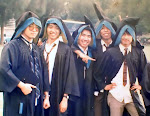
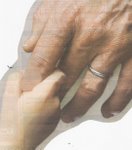

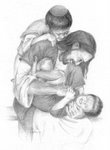



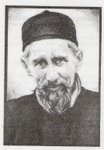


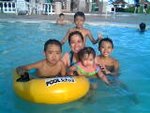

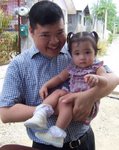





No comments:
Post a Comment